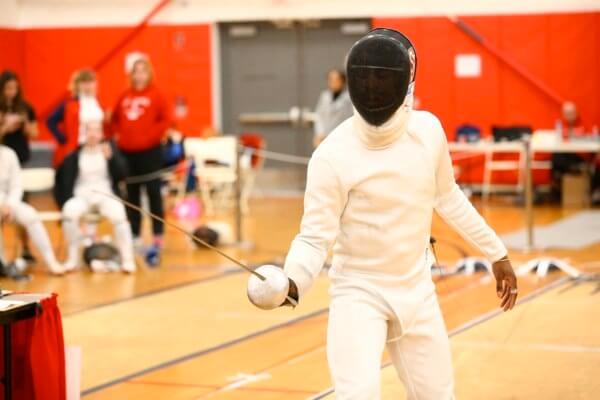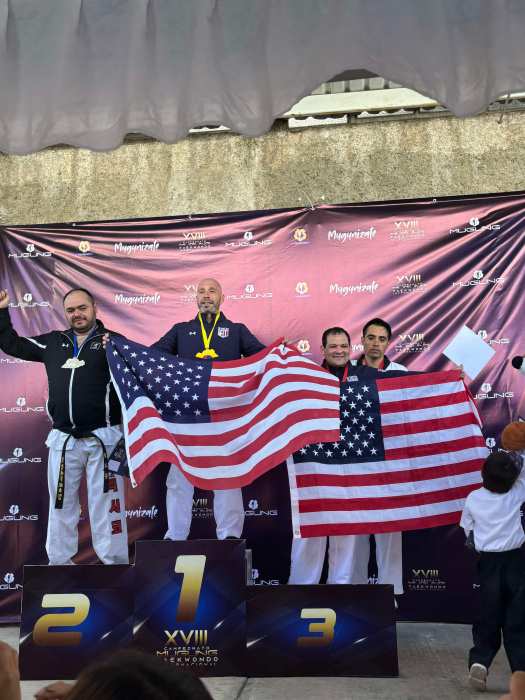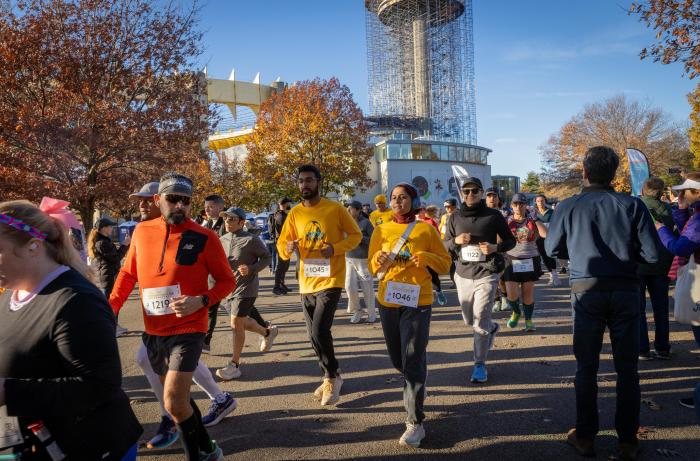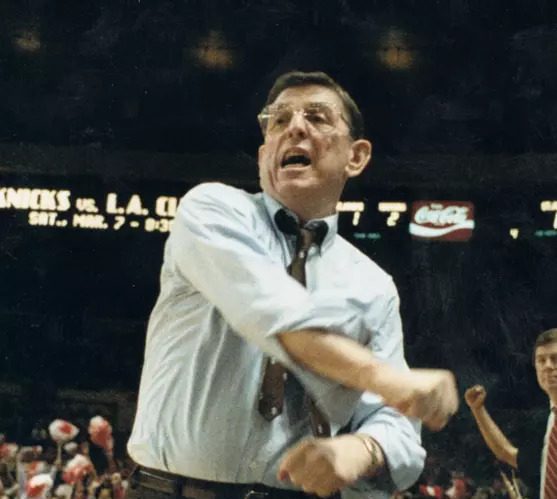By Angelica Acevedo
A native of South Jamaica, Curtis McDowald is not too far away from home as he begins his senior year at St. John’s University and his third consecutive year on its fencing team, in the epee category.
He told the story of his first match nine years ago, one that he recalls as vividly as if it were yesterday, and considers a turning point in his life. McDowald, then just 12, went against a 6-foot-7 boy who was about 17 years old.
“He scored the first point and one of the instructors, who is a St. John’s alumnus, Adam Rodney, comes up to me and tells me a couple instructions like take a parry pose,” McDowald recalled. “So I did exactly what he said and I scored.
“Another St. John’s alumnus, Ben Bratton, also gave me some instructions. He said, ‘just make a straight attack on him.’ I did exactly that and I won the match. It was my first ever match. It was at that moment they were like, ‘he gets it.’ I remember it so well because it was the first time I met all these faces, first time they directly spoke to me, and now these are some of the closest people in my life. It’s a moment I can’t ever forget.”
As his final academic year approaches, McDowald has caught the attention of many in the fencing world, both nationally and internationally, by collecting an extensive list of accolades.
He finished the 2016-17 season with a 22-10 record, which included a perfect 3-0 record at the NYU Invitational and eight wins at the St. John’s Invitational. McDowald placed second at the NCAA Northeast Regionals with a 17-6 record and claimed a silver medal at the January North American Cup in men’s epee.
McDowald credited his coaches at St. John’s for helping him reach the level he is at today.
“I knew about the lineage of the strong fencers that went to St. John’s, since I had a lot of friends and mentors who are alumni from there,” he said. “And as I started approaching the real part of my fencing career, I realized that if I was anywhere other than New York, it’d be quite difficult to develop my skills.”
Setting him apart from the majority of fencers is that he’s one of the few black athletes in the community.
He does, however, see the number of minorities increasing in the sport recently. Fencing is historically known to be an expensive sport, with costs ranging from $650 to $1,300. Thus, the opportunities for minority players were, and still are, slim.
In spite of this, McDowald has become one of the top fencers in the nation. His rise to the top has him dreaming big. He hopes to one day make it to the Olympics.
“I’m aiming for 2020, absolutely,” McDowald said. “That’s what everything I’m working on is for. I don’t believe in doing anything at a lower level.”
He said his journey into the fencing world began began with his mother, who encouraged him to join the Peter Westbrook Foundation in Manhattan.
“She introduced the concept to me and when she explained what it was, I thought I was going to have like a Jedi match or I’d get to slay someone or something,” he said with a chuckle.
Westbrook, a former sabre fencer and Olympic bronze medalist, established the foundation in 1991. The non-profit organization seeks to “enrich the lives of young people from underserved communities in the New York metropolitan area,” according to its website.
McDowald, along with other young, yet skilled fencers, volunteers each Saturday during the morning practices.
“I feel a responsibility that I need to go because if it wasn’t for the four other gentlemen who are on my team right now that said, ‘Hey I think you have a shot of doing this,’ and selecting me to train with them, I wouldn’t be here,” McDowald said.
McDowald ran the epee class with a group of about 20 teens last Saturday, while Westbrook remembered a much different McDowald, a young and smug one, when he began fencing. He recalled his initial doubts about his character, although he exuded natural talent.
“Now, he’s become humble. He works with the kids and his greatness is really coming out,” Westbrook said. “One day, Curtis is going to make that Olympic team. Before, he couldn’t because his pride and ego got in the way. We smacked that out of him, and now I’m so proud and impressed with him. I can’t wait until he makes that team.”
McDowald was joined by two other members of the St. John’s team: sophomores Shomari Moore and Omari Smoak. They also began their fencing careers at the PWF. Moore and McDowald both joined around the same time.
“He does play that mentor role sometimes, but mostly the friend role,” Moore said. “Since some of our mentors are much older than us, he’s like a liaison between the old and new generation.”
As someone who has found his niche in the small world of fencing, McDowald encourages others that want to pursue this sport to do the same.
“Don’t let the lack of seeing people with your same skin color or same face prevent you from pursuing a sport, don’t let people of your own race devalue what you’re doing,” McDowald said. “If this is something that you really want to do, there are so many opportunities and you will be a pioneer because you’re doing something different.”




































